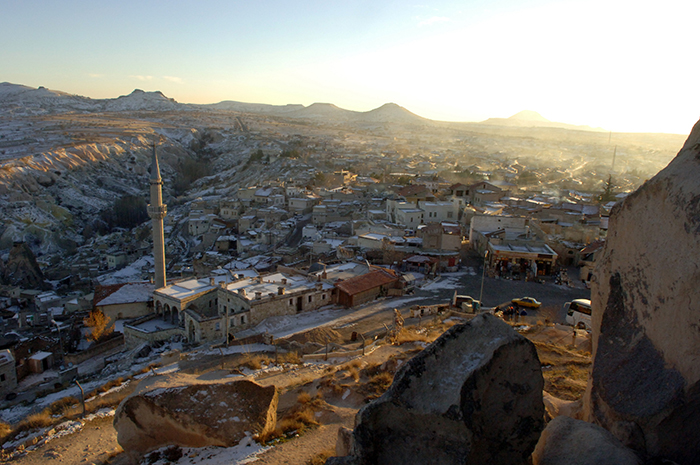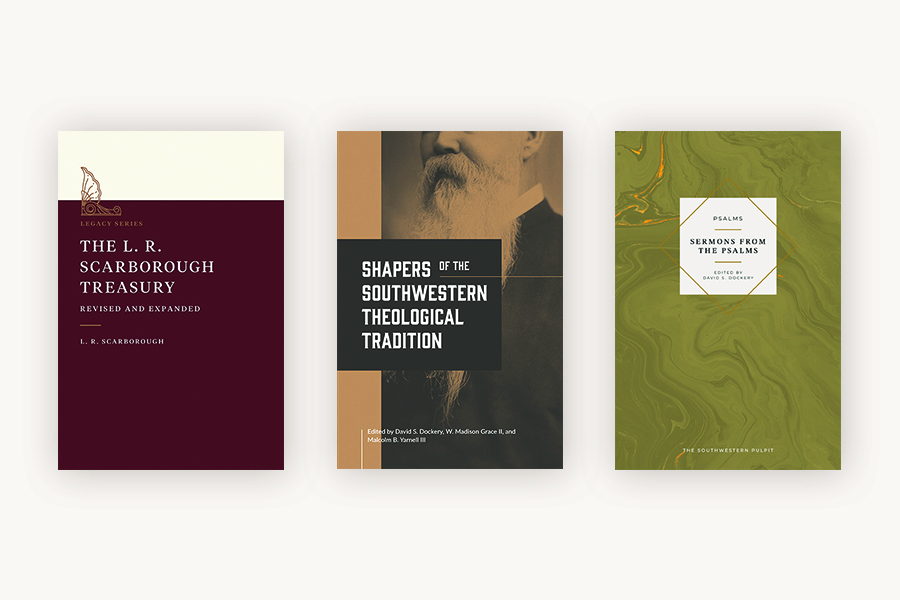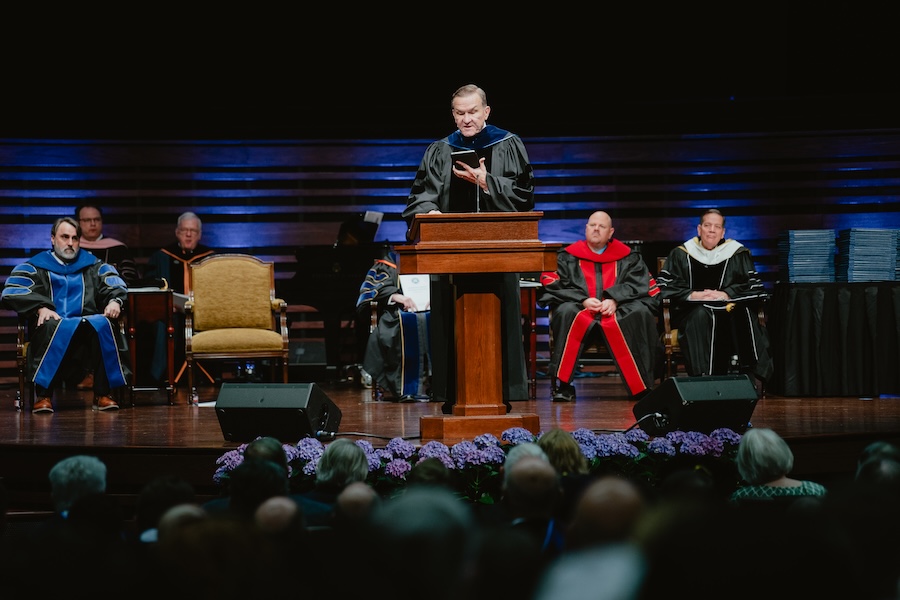Global Missions Week emphasizes ministry opportunities in Central Asia

Social pressure, violence, and unrest are barriers to mission work in Central Asia, but the region is fertile with opportunities for enthusiastic missionaries who want to spread the Gospel abroad, International Mission Board representatives told students at a luncheon recognizing Global Missions Week at Southwestern Baptist Theological Seminary.
The Sept. 18 luncheon brought together students and missions for Global Missions Week. It was one of a half-dozen events organized by the World Missions Center, intended to inform students about mission work and the possibilities open to them.
IMB affinity leaders talked about mission opportunities in three regions of Central Asia and urged students to contact them if they think their skills and interests might be a good fit for the work at hand.
“If you go there, expect it to be hard,” an IMB leader for Central Asia told the group. “If it wasn’t hard, it would have already been done.”
Twenty percent of the world’s Muslim people live in Central Asia, and speakers of 29 active languages in the region still have no active Christians among them, the IMB leader said. People have many false perceptions about Jesus, and there are barriers to evangelizing due to hostility toward the Gospel, Americans, and the West in general.
“Still, the Great Commission sends us to go,” he said, “to go to the place where fewest have heard the Gospel. That’s why we’re in Central Asia.”
The majority of people in the part of Central Asia that used to make up the Soviet Union are diverse in culture and needs, and are hardened to Christianity, one speaker explained. Yet there are also opportunities where the church is more developed, he said. In other parts of the former Soviet Union, missionaries have the opportunity to help people resolve their struggles with racism and prejudice.
Another IMB representative described outreach to the peoples of Asia Minor. Among its 100 million people, fewer than a tenth of 1 percent are believers. Among the region’s 69 people groups, 25 have no one engaged with Christianity. Opportunities for missionary service are plentiful in this region, he said. “There are many people there who have never heard the truth, and no churches to reach out to them.”
Another IMB representative urged students at the luncheon to pray for the ouster of violent radicals from these regions. Social and family pressure and political unrest are significant barriers to mission work there, he said. “But there are leaders being raised up; there are churches being planted. God is at work there.”
Throughout the week, the WMC also hosted a missions information night; a “Mommy & Me Storytime” event for women and young children (see here); a women’s tea and panel discussion; and the annual Tastes of the Nations event, showcasing popular foods from regions around the world.
On Thursday night, Ask-a-Missionary, a discussion session intended to allow students to ask questions about missionary service, capped the week of events. About 60 students heard four missionaries representing Central Asia describe their roles and challenges. Service in Central Asia is “inspiring,” one said. “You can walk in the footsteps of the apostle Paul.”
Responding to questions, missionaries described how they build teams to create viable churches, and said church planting leaders are needed. Missionaries with backgrounds in engineering, nursing, and agriculture are in demand, along with English teachers. Physical fitness is encouraged as well.
Challenges persist in maintaining healthy family relationships, they said, particularly when there is a lack of support system for spouses. Children may also struggle with living overseas. Flexibility is mandatory. “We had three days to move from one country to another,” one missionary said.
The group emphasized that the Gospel resounds with Muslim women because it encourages self-esteem and self-worth. “Women have a vital role in evangelism because they are likely to hear the Gospel from each other,” one said.
Learning the language is an ongoing challenge, another missionary said. One recalled a time when he attempted to invite an Asian man to an event, but instead, through language errors, told him, “I invite you to go to hell.”
“At home, you’re an intelligent person, but then you become a child again, trying to communicate,” another said. “The learning never ends.”
For more information about how to get involved in missions efforts, visit swbts.edu/wmc.



